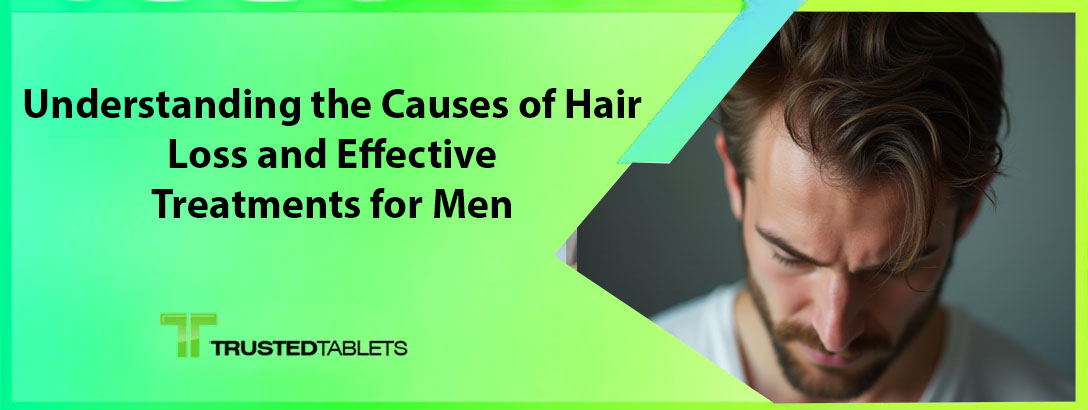Hair loss is a common concern that affects many men, often leading to feelings of insecurity and diminished self-confidence. Understanding the causes of hair loss is crucial for developing effective hair restoration strategies and treatments. In this article, we will delve into the various factors contributing to thinning hair, explore potential solutions, and discuss how lifestyle changes can play a pivotal role in maintaining a healthy scalp and promoting hair growth.
The Complex Causes of Hair Loss
Hair loss, medically known as alopecia, can occur for a multitude of reasons. While genetics often plays a significant role, other factors contribute to this condition, including hormonal changes, nutritional deficiencies, and environmental influences.
Genetic Factors
Androgenetic alopecia, commonly referred to as male pattern baldness, is the most prevalent cause of hair loss among men. This genetic predisposition results in a gradual thinning of hair, typically starting at the temples and crown of the head. If there is a family history of hair loss, the likelihood of experiencing this condition increases significantly.
Hormonal Changes
Hormones also play a critical role in hair health. Dihydrotestosterone (DHT), a derivative of testosterone, is known to contribute to hair follicle miniaturization. As levels of DHT rise, hair may begin to thin and eventually fall out. Conditions such as hypothyroidism and hyperthyroidism can also lead to hormonal imbalances that impact hair growth.
Nutritional Deficiencies
A lack of essential nutrients can lead to hair loss. Vitamins and minerals such as biotin, iron, and vitamin D are crucial for healthy hair. Diets low in protein can also negatively affect hair growth, as hair is primarily made of protein. A well-balanced diet rich in these nutrients is essential for maintaining not only overall health but also the vitality of your hair.
Environmental Factors
Exposure to harsh environmental conditions can damage hair and lead to thinning. Pollution, UV radiation, and chemical treatments can weaken hair strands, making them more susceptible to breakage and loss. Implementing a proper scalp care routine and protecting hair from environmental damage can mitigate these effects.
Effective Hair Restoration Treatments
There are various treatments available for hair loss, ranging from topical solutions to advanced medical procedures. Understanding these options can help you make informed decisions regarding your hair restoration journey.
Topical Treatments
Over-the-counter topical treatments such as minoxidil are widely used to promote hair growth. Minoxidil works by increasing blood flow to hair follicles, stimulating growth, and preventing further loss. It is important to note that results may vary, and continuous use is required to maintain benefits.
Prescription Medications
For more severe cases of hair loss, prescription medications may be necessary. Finasteride, an oral medication, works by inhibiting the conversion of testosterone to DHT, helping to slow down hair loss and promote regrowth. Consulting with a healthcare professional can determine if this option is suitable for you.
Hair Restoration Procedures
For those seeking more permanent solutions, hair transplant surgeries can be effective. Procedures such as Follicular Unit Transplantation (FUT) and Follicular Unit Extraction (FUE) involve relocating hair follicles from a donor site to the balding areas of the scalp. These techniques have advanced significantly, offering natural-looking results.
Low-Level Laser Therapy (LLLT)
Low-Level Laser Therapy is a non-invasive treatment that utilizes light energy to stimulate hair follicles. This method has been shown to improve hair density and promote regrowth, making it a viable option for many men experiencing hair loss.
Scalp Care and Its Impact on Hair Health
Maintaining a healthy scalp is fundamental to promoting hair growth. Implementing a proper scalp care routine can significantly enhance the effectiveness of hair restoration treatments.
Cleansing and Exfoliating
Regularly cleansing the scalp removes dirt, oil, and product buildup that can clog hair follicles. Incorporating a gentle exfoliating scrub can help remove dead skin cells, promoting a healthier environment for hair growth.
Hydration and Moisturization
Keeping the scalp well-hydrated is essential for overall hair health. Utilizing moisturizing shampoos and conditioners can help maintain the moisture balance in the scalp, preventing dryness and irritation.
Scalp Massage
Incorporating scalp massages into your routine can enhance blood circulation, providing hair follicles with essential nutrients. This practice can be easily integrated into your hair care routine, promoting relaxation and improving overall scalp health.
Lifestyle Changes for Healthier Hair
Making positive lifestyle changes can have a significant impact on hair health. Here are some strategies to consider:
Balanced Diet
Adopting a diet rich in vitamins and minerals is crucial for maintaining healthy hair. Focus on including a variety of fruits, vegetables, whole grains, lean proteins, and healthy fats in your meals.
Regular Exercise
Engaging in regular physical activity improves blood circulation, which is essential for delivering nutrients to hair follicles. Exercise also reduces stress, a known factor in hair loss.
Stress Management
Chronic stress can lead to hair loss by disrupting the hair growth cycle. Incorporating stress-reducing activities such as yoga, meditation, or mindfulness can help maintain hair health.
Adequate Sleep
Quality sleep is vital for overall health, including hair health. Aim for 7-9 hours of uninterrupted sleep each night to allow your body to recover and regenerate.
Confidence and Wellness Through Hair Restoration
Experiencing hair loss can take a toll on self-esteem. However, with the right treatments and lifestyle changes, men can regain their confidence and improve their overall wellness. Investing in hair restoration not only enhances appearance but also contributes positively to mental health and quality of life.
Conclusion
In conclusion, understanding the causes of hair loss and implementing effective treatments is crucial for maintaining a healthy mane. By addressing genetic factors, hormonal changes, nutritional deficiencies, and environmental impacts, men can take proactive steps towards hair restoration. Combining these efforts with proper scalp care and positive lifestyle changes can significantly enhance the likelihood of achieving successful results.


